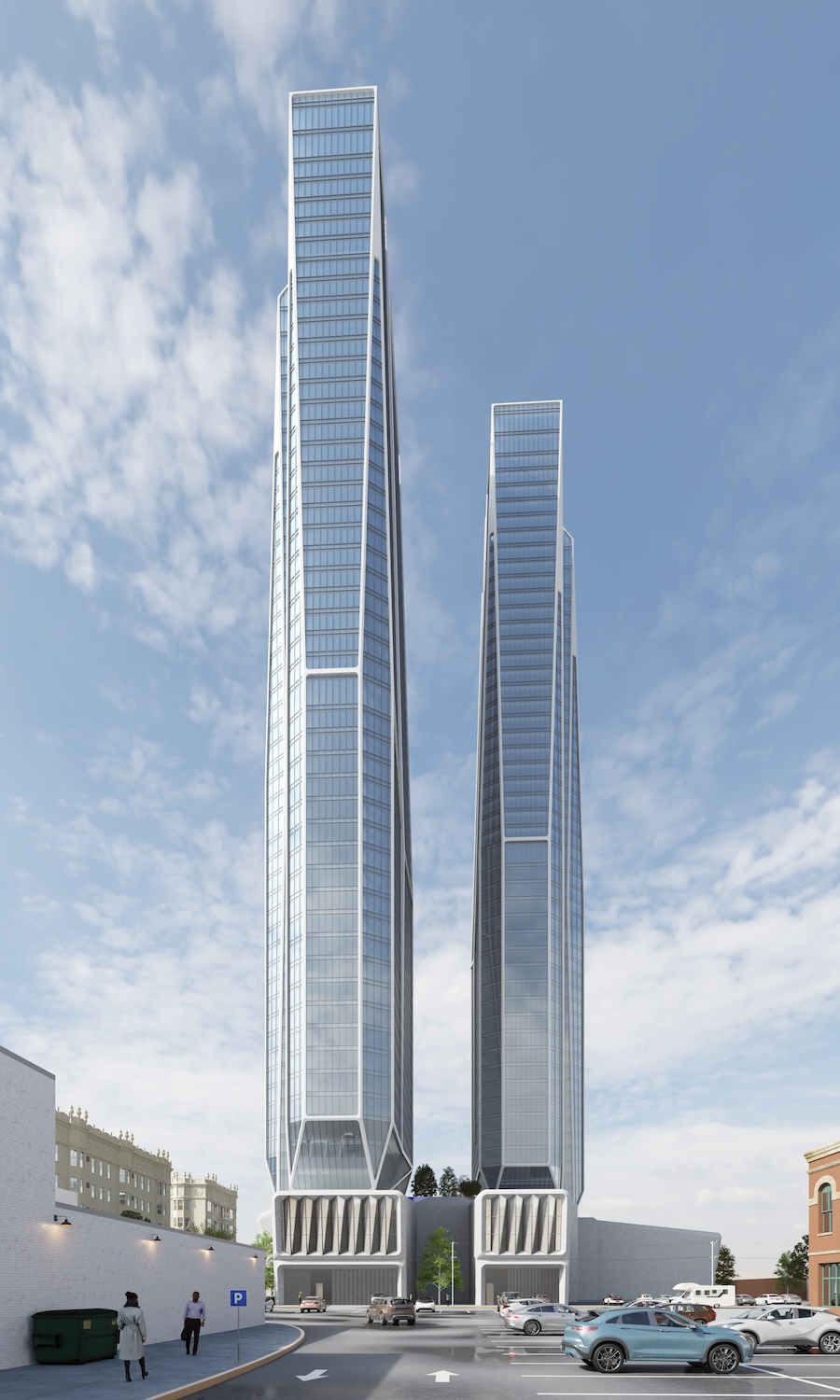Newark’s skyline is perpetually evolving, a testament to the city’s dynamic growth and a magnet for ambitious development. However, the path to progress is rarely without its twists and turns, and a significant new legal challenge is casting a shadow over one of the city’s most anticipated projects: the massive Mulberry Pointe development.

This approved, two-tower residential and commercial complex, poised to dramatically reshape a key area of Newark, is now facing a determined legal battle. A formidable group of companies, all linked to a prominent Newark developer, have initiated litigation in Essex County Superior Court, seeking to completely void the approvals granted to Mulberry Pointe. This legal maneuver could significantly impact the project’s timeline and, by extension, the broader landscape of Newark’s urban transformation. For a closer look at the intricate world of real estate development in our state, explore our dedicated section on New Jersey Real Estate.
The lawsuit, filed on July 24th by eleven plaintiffs, targets both the Newark Central Planning Board and a subsidiary of the developers behind Mulberry Pointe, KS Group and GIGA Holdings. The plaintiffs are identified as various land-owning LLCs with direct ties to Paramount Assets, a major player in the Newark development scene. Interestingly, one of these entities is connected to an approved, yet still unbuilt, development at 1010 Broad Street, currently listed as a vacant lot available for rent. This connection adds another layer of intrigue to the unfolding legal drama.
Unpacking the Objections: What’s at Stake?
Mulberry Pointe is an imposing vision for Newark. The approved plans detail a three-story podium serving as the foundation for two towering 51-story mixed-use structures. Together, these towers are slated to introduce a staggering 1,008 dwelling units to the city, with 203 of these specifically designated as affordable housing, fulfilling Newark’s 20% affordable housing mandate. Beyond residences, the ground floor promises approximately 3,500 square feet of commercial space along East Kinney Street, designed to invigorate the street-level experience. Architectural renderings also showcase an inviting outdoor garden and walking path connecting the towers atop the podium, complemented by additional amenities and recreational spaces planned for the pinnacle of both 51-story towers.
However, the recently filed lawsuit challenges the very foundation of this approval, citing two primary grievances:
- “Insufficient” Public Notice: The core of the first argument revolves around the public notice provided for the Mulberry Pointe application. The lawsuit contends that this notice was “materially deficient” and failed to adhere to state regulations. Specifically, it alleges that the notice neglected to specify the exact heights of the two 51-story buildings (each reportedly 586 feet tall) or their total square footage. Furthermore, a crucial omission, according to the suit, was the failure to mention that the property is situated within a designated redevelopment plan area. This, the plaintiffs argue, constitutes a “severely deficient description of what is actually being proposed,” hindering proper public awareness and participation.
- Procedural Impediments and Denied Testimony: The second major point of contention centers on alleged procedural irregularities during the Newark Central Planning Board hearings. The lawsuit claims that while the plaintiffs’ counsel was permitted to cross-examine Mulberry Pointe’s expert witnesses, this cross-examination was “unduly and illegally encumbered” by “constant objections to valid inquiries.” Additionally, the board is accused of imposing “arbitrary time limitations” on the availability of the applicant’s experts.Perhaps the most significant accusation, however, is that the board “den[ied] Plaintiffs the opportunity to present an ‘objectors case’ through the testimony of [their] own expert witnesses.” The lawsuit states that these experts were “ready, willing and able to testify on the final night of the hearings and at the requisite time.” Upon this denial, the board proceeded directly to a vote, subsequently approving the development. The plaintiffs assert that this refusal to allow their expert testimony renders Mulberry Pointe’s approvals null and void.
Anticipated Headwinds and the Road Ahead
This lawsuit wasn’t entirely unexpected. Contentious exchanges during previous hearings had foreshadowed legal action. Attorney Rob Simon, representing Paramount Properties and other nearby landowners, had previously raised objections during a March meeting, specifically citing issues with public notice. This initial concern even led to a delay in the application’s hearing. During the same meeting, an attorney for KS Group suggested that Paramount’s objections might stem from a failed land sale agreement between the parties, adding another layer of complexity to the narrative.
As of now, a date for future court proceedings on this lawsuit has not been set. Nevertheless, this legal challenge undoubtedly introduces a significant “kink” into the meticulously laid plans for Mulberry Pointe. The outcome of this litigation could have far-reaching implications for development practices in Newark and across New Jersey, underscoring the critical importance of transparent procedures and thorough public engagement in large-scale urban projects. We will continue to follow this developing story closely on Explore New Jersey, as it unfolds.












